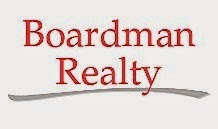A few years after our big move to Anoka County I became a REALTOR®. Now, I show homes to other families looking for the same escape from the city that we took several years ago. I notice that the same questions continue to come up whether considering a hobby farm in Columbus, an acreage lakeshore home in East Bethel, a horse property in Scandia or an executive estate in Ham Lake. Though the properties that are being considered are only 15-20 miles from the nightlife of downtown Minneapolis, there are significant differences in the way of life out in the country. Here are s
 ome important questions and considerations that face my clients as they make their move from the city to the acreage in Anoka and Chisago Counties.
ome important questions and considerations that face my clients as they make their move from the city to the acreage in Anoka and Chisago Counties.
**Does the home have a Septic or Private Sewer system?
Most rural homes have a private septic system. Not all systems are created equal. They are designed for the specific property and size of the home. Even a new septic system can fail if not properly maintained. How do you know if the septic system is working? Is there a required inspection at the point of sale? Not all rural communities will require a septic inspection. Some like Wyoming and Columbus do for every sale, some like East Bethel only require if you are near a lake or river but others have no point of sale inspection requirement for the septic. To protect your interests when buying an acreage homes with a septic system, require the seller to supply a report of compliance from a certified septic inspector in your purchase agreement. If you have never lived on a home with a septic system, it is important to educate yourself on how to best maintain your system. Additional information on Septic Systems.
**Does the home have access to city water or a private well? Do I need a water softener or other water treatment system?
Families new to the concept of well water have many questions regarding its safety. Traditionally, well water is tested for bacteria and nitrates at the time of sale by the seller. A lead test for well water is required only for FHA loans. If you want the well test for your property to include other contaminants, it must be specified in the purchase agreement. Annual water testing is recommended for all home owners with wells. Additional information on Private Wells and how to locate your MN Unique Well Number.
One question often asked by home buyers considering a property with a private well is about water treatment options available. Many homes with private wells have water softeners to treat the water in the home. Some will go one step further and have a reverse osmosis water treatment system in the kitchens as a drinking water supply. Additional information on Water Softeners and Reverse Osmosis Drinking Systems.
**Is there a natural gas supply to the home or will a propane tank be located on the property?
Often people looking at acreage will have questions about the huge propane fuel tank located near the home. These tanks are usually see only at gas stations where homeowners fill their small propane tanks for the weekend BBQ. In the country, the large tanks are in many backyards as the source of fuel to heat the home and run appliances. As a fuel source the differences are not noticeable. Propane is the least expensive cleanest fuel if a home does not have access to natural gas. Additional information on the differences between natural gas and propane.
**Does the home have access to cable or high speed internet or will a satellite connection be required? Can I get high speed internet through the phone line? Does the property have cable access? What are the alternatives if DSL is not available through the phone or cable lines?

A decade ago, these were not questions that few people cared about in the rural communities. Today our interconnected world brings these questions to the forefront. Believe it or not, there are still many homes in Lino Lakes, Ham Lake, Forest Lake and East Bethel that do not have cable lines or high speed internet available through the phone lines. If your family lives on the internet and could not live without a high-speed connection, it is essential to find out whether a home has access. The alternative of direct satellite high speed internet is significantly more expensive.
**Is the road frontage paved? If the road is not paved, how often is it maintained by the city/county?
When our family first moved to our home to a rural area in MN, the road was not paved. We were nearly a mile down this soft, sandy dirt road. We moved in the late fall and had no idea of the extremely poor condition of the road in the April rain of spring. It was treacherous at times. The regrading was done by the city on a schedule so we would have a pot-holed road for days. Our road has been paved for years now but the memories of the rutted spring road still remain.
If you are considering acreage, remember many rural roads are not paved. Try to visit the property on several occasions and under differing conditions to determine the condition of any unpaved access roads. Talk to the city and county to understand the maintenance schedule for the road. Also be sure to ask if there are any plans to pave the road in the future and what would be assessed per property owner for the project.
**Is there wildlife?
Well maybe not lions and tigers, but we have sited bears and foxes seen near our home. We also have pheasant, hawks, bald eagles, raccoons, several varieties of squirrels and deer. A flock of a couple dozen wild turkeys have made their home in our neighborhood too. And an owl and a hawk both nest in trees in near our property. I rarely saw blue jays, cardinals or hummingbirds in the city, but in our rural home we see them on a daily basis. While exciting, the downside is sometimes the wildlife comes in. I don’t know anyone that doesn’t have an occasional field mouse enter their home.

**Is hunting allowed?
In some rural areas hunting is still allowed depending on the amount of acreage, the development restrictions and city and county rules. It was a rude awakening for us to discover our neighbors were allowed to hunt. Imagine our shock that first deer opener when the hunters came out in blaze orange to hunt in the woods next to our home. The property owner, at our request, posted the land and the hunters left. The land has since been developed but it is something everyone moving should understand before buying any acreage home. Check with the city and county for all ordinances regarding firearms.
**Where are the schools?
The public school districts in rural communities can be vast. In Forest Lake District 831 in Minnesota for example, students come from communities as far west as Ham Lake, as far south as Lino Lakes, as far east as Scandia and as far north as Stacy! It you drive from the western border to the eastern border of the district, it takes almost 45 minutes, one way! This particular school district has only one high school so your children’s best friend from school could literally live almost an hour from your home. It pays to research the school district prior to any housing decisions.
Also school alternatives can be limited. Communities in the city have dozens of private and charter school options. These options are much lower in rural areas due to the smaller population. Additional information on Educational Alternatives in the North Metro.
**Can we have a bonfire and burn all this debris?
There are strict state and local restrictions regarding burning of construction debris and yard waste. There are restrictions on the size of the fire and what can be burned. Many construction materials cannot be burned because they release chemicals into the air that pose an environmental hazard. There are times of the year where burning is only allowed by permit and sometimes not at all. Before burning it is best to check the local restrictions as well as the DNR. More information on MN Fire Restrictions.
**Where do we shop? How far to the nearest corner store, gas station, shopping center and mall?
Depending on how often you like to shop, this may or may not be a big concern. But it is always nice to know how far you will have to go for a gallon of milk for breakfast or a gallon of gas for the lawn mower.
**How long does it take to cut the grass?
If your yard is over an acre with few trees, you might consider a lawn tractor. Many people on acreage only cut certain areas leaving the rest to grow to a natural prairie. Another consideration would be whether or not to install an irrigation system for the sod near the home.
**Wow! There are a lot of trees! Do I have to worry about oak wilt? Oak wilt is a big concern in Anoka and Chisago counties. Many of the communities have information and programs to help protect and save the oak trees from this disease. Additional information regarding oak wilt.
**What about emergencies? How far to the nearest hospital? Where is the nearest fire station? Who provides police protection?
No one wants to think about these things when moving but accidents and illnesses do happen. It was a long hour drive to Children’s Hospital in St. Paul when son fell and needed stitches in his upper lip. If the nearest fire station is staffed with volunteers and over five miles away, it will seem like a lifetime during those 5-10 minutes while you wait for the fire truck to show up to YOUR home. Many rural communities do not have police officers but are patrolled by the county sheriff’s department. Understand your options before an emergency occurs because it will likely take a bit longer if you are in a rural area.
With a little planning your move to a home on acreage can be a great one!
Copyright 2011 Teri Eckholm



